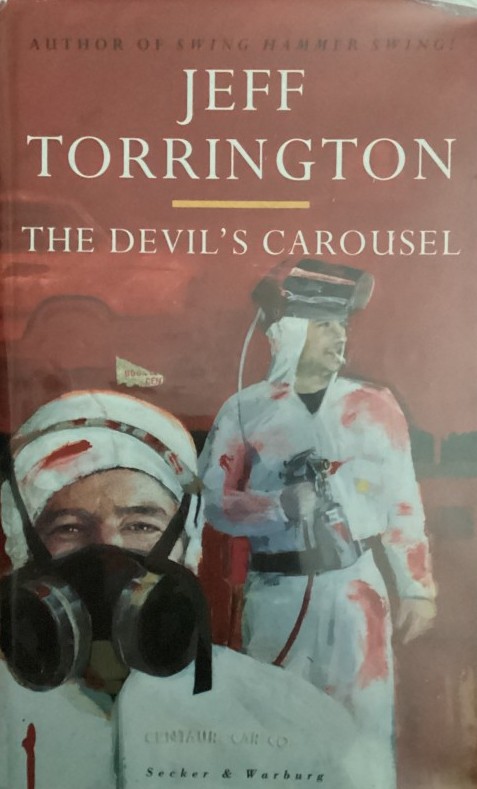Inspiring Older Readers
 posted on 12 Mar 2023
posted on 12 Mar 2023
The Devil’s Carousel by Jeff Torrington
Scottish author, Jeff Torrington (1935-2008) wasn’t by any stretch of the imagination a prolific writer. Against the odds his novel, Swing Hammer, Swing! which was set during the demolition and regeneration of The Gorbals, won the Whitbread Prize in 1992. It turned out to be Torrington’s magnum opus, taking over 30 years to complete and by the time of publication he was already suffering from Parkinson’s Disease.
His only other completed novel was The Devil’s Carousel in 1998 which drew heavily on the author’s own experience of working on the car production line at Rootes/Chrysler plant in Linwood. Torrington worked there for about eight years as a telex sequencer and this novel begins with Steve Laker (a fictionalised Torrington) reluctantly finding himself having to take up the role of telex sequencer at Centaur Cars – a job he’d sworn to himself and his friends he’d never do.
When Laker enters the factory, we go with him into the very heart of an industrial version of Hell. This is a world of grotesques, skivers, broken spirits; a management that has no real understanding of its own workforce and trade unions that represent the only real resistance to heartless exploitation. Health and safety is a joke in this environment and well-being of the workers is in the hands of a plant medical centre that wouldn’t have been out of place in a Carry On movie.
The relationships between the men on the line is dominated by a bitter gallows humour that finds an almost surreal outlet in the unofficial newsletter that circulates periodically and completes the end of each chapter. Men die of heart disease, fake their own disappearance, sabotage special production runs and ultimately find themselves on the scrapheap when the factory owners simply decide to pull the plug on the operation.
Even death – briefly acknowledged but never really mourned – doesn’t bring any sense of humanity to the factory floor. Nicknames dominate the working environment and underscore just how brutalised the men are and Torrington emphasises the noise and smells that dominate the senses. The job stinks, the men stink, management stinks, the pay stinks….
In many ways this is not really a novel at all but a series of overheated vignettes that are strung together to create an overview of life in the car factory. It’s a place without a future and without hope – no-one but the desperate could possibly want to dedicate their life to Centaur Cars.
The book is comparatively slight by comparison with Swing Hammer, Swing! and it’s an angry book. The inhuman world of automated car production is laid bare and the only way out for these working class men is redundancy or death. Ultimately, redundancy will come courtesy of the robots that are introduced briefly before the plant is summarily closed down.
Liam Callanan writing for The New York Times in 1996 captured the spirit of Torrington’s book precisely:
“Torrington (who won the Whitbread Prize for his first novel, ''Swing Hammer Swing!'') uses unapologetically blunt prose, painting the world of the factory floor in vivid, lurid detail. Occasional bouts of dark humor - frequently delivered via typescript facsimiles of the plant's renegade employee newsletter - do more to underscore the bitterness of the characters than lighten the relentlessly despairing mood. More a series of loosely connected short stories than a single narrative, the novel progresses in fits and starts, much like the factory's beleaguered assembly line. The effect perfectly echoes the fragmented lives of its subjects, making ''The Devil's Carousel'' a jolting ride.”
Paperback and hardback copies are easily found online and shouldn’t cost you more than £5 or £10 respectively.
Terry Potter
March 2023